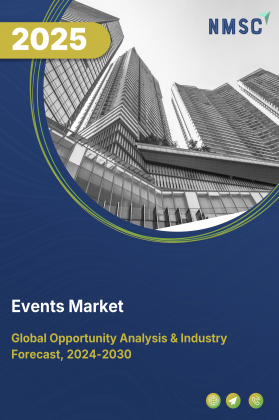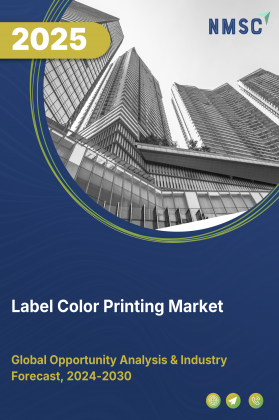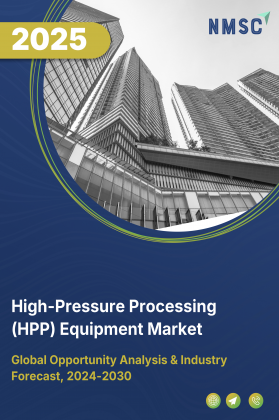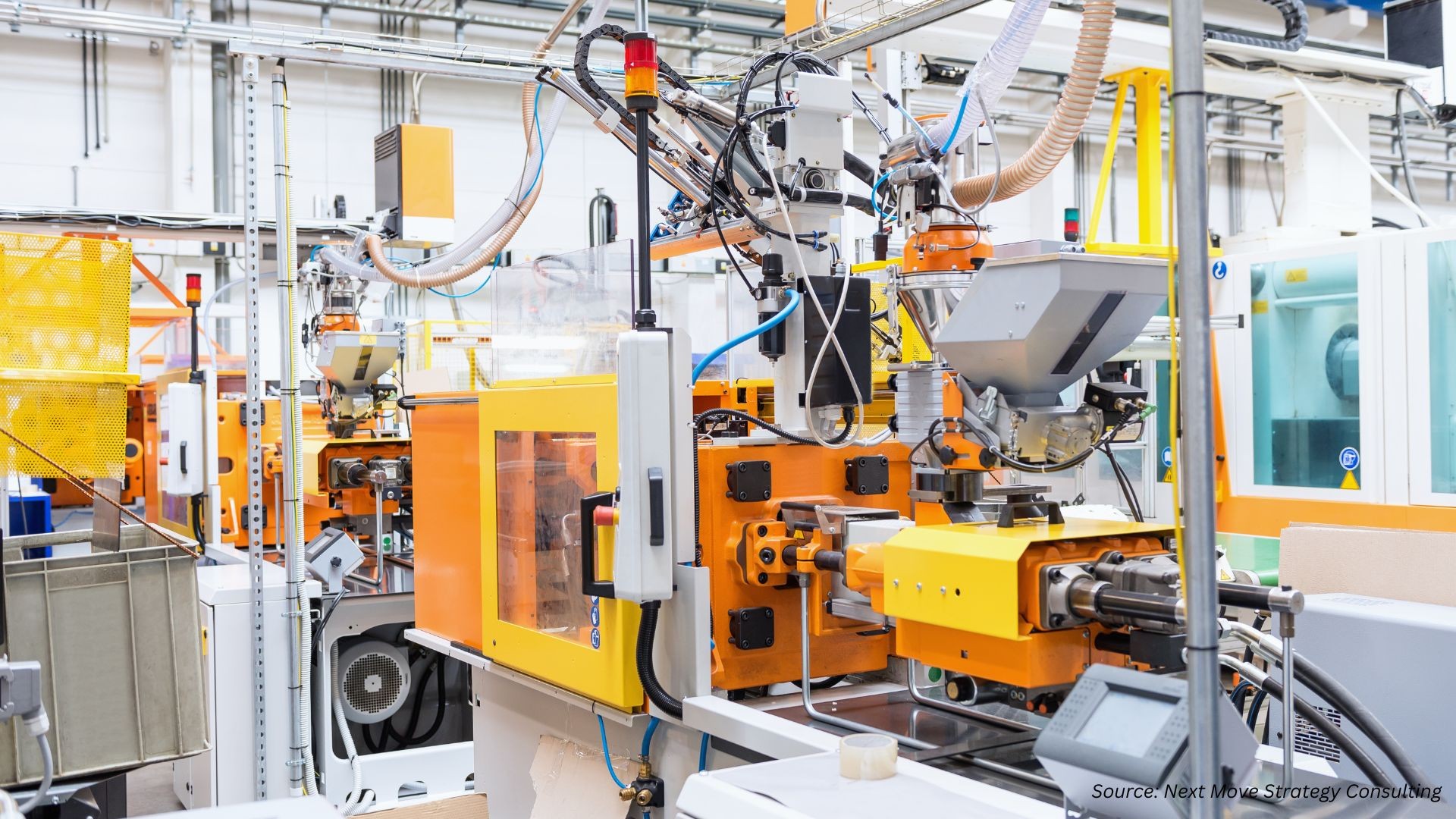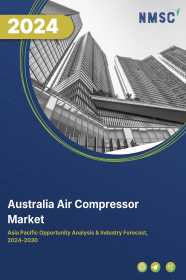
Australia Air Compressor Market by Technology Type (Positive-Displacement, and Dynamic-Displacement), by Drive-Power Source (Electric-Driven, and Engine-Driven), by Lubrication type (Oil-Free, and Others), by Power Rating (0-100 kW, and Others), by Discharge Pressure (Low-Pressure, and Others), by Mobility (Stationary, and Portable), by Speed Control (Fixed-Speed, and Variable-Speed), by End-Use Industry (Manufacturing, and Others) – Opportunity Analysis and Industry Forecast, 2024– 2030
Industry: Construction & Manufacturing | Publish Date: 08-Aug-2025 | No of Pages: 202 | No. of Tables: 162 | No. of Figures: 107 | Format: PDF | Report Code : CM2183
Australia Air Compressor Market Overview
The Australia Air Compressor Market size was valued at USD 218.8 million in 2023, and is projected to reach USD 338 million by 2030, at a CAGR of 5.9% from 2024 to 2030. In terms of volume, the market size was 8 thousand units in 2023, and is projected to reach 16 thousand units by 2030, with a CAGR of 9.3% from 2024 to 2030.
An air compressor is an essential mechanical device used across various industries to generate compressed air, that is vital for many applications. It primarily converts power from sources such as electric motors or diesel engines into potential energy stored as compressed air. This pressurized air is then used to power pneumatic tools and equipment, inflate tires, supply air to HVAC systems for climate control, and support industrial processes such as spray painting and packaging. Essentially, an air compressor provides a reliable source of compressed air, crucial for a wide range of tasks and operations in diverse business and industrial environments.
Rising Infrastructure Spending Boosts Demand for Portable and Heavy-Duty Air Compressors
Australia’s renewed focus on national infrastructure—spanning transportation corridors, renewable energy installations, smart cities, and water management systems—is significantly driving the demand for high-performance air compressors. As part of the 2024–25 Federal Budget, the government allocated over AUD 120 billion for infrastructure investments across states, including key projects like Western Sydney Airport, North East Link in Victoria, and Inland Rail. These projects require portable, fuel-efficient, and high-capacity compressors for drilling, road cutting, tunneling, and other construction applications. With on-site reliability and energy optimization now becoming critical benchmarks, demand is rapidly shifting toward rugged, low-maintenance compressors capable of enduring harsh Australian conditions.
Energy Efficiency Standards Driving Adoption of Advanced, Variable Speed Systems
Australia's commitment to reducing industrial emissions under the National Energy Performance Strategy (2023–2030) is accelerating the shift toward variable speed drive (VSD) and oil-free compressor systems. The rising cost of electricity and increased pressure to meet sustainability KPIs are pushing enterprises to replace legacy units with energy-efficient alternatives. These modern compressors dynamically adjust air output based on real-time demand, significantly lowering energy consumption and lifecycle costs. Industries such as food processing, pharmaceuticals, and advanced manufacturing are leading adoption, drawn by both compliance requirements and the long-term financial benefits of energy savings.
Skilled Labour Shortages and Maintenance Gaps Affect Rural Deployments
While demand is growing beyond metro hubs into regional and remote areas—particularly in mining, agriculture, and construction—Australia faces a critical shortage of skilled technicians to install, maintain, and troubleshoot advanced air compressor systems. Many rural operators struggle with delayed maintenance cycles, inadequate diagnostics, and a lack of access to certified service centers. These challenges not only compromise compressor efficiency and lifespan but also discourage end users in remote regions from investing in higher-grade systems. Without targeted investment in technical training and decentralized service infrastructure, this labor gap remains a key barrier to nationwide adoption.
Green Industrial Transition Opens Pathways for Low-carbon Compressor Solutions
Australia’s accelerating push toward net-zero emissions by 2050 is opening new avenues for the deployment of low-carbon, energy-optimized compressor technologies. The emergence of green hydrogen, battery storage plants, and carbon capture initiatives is creating demand for oil-free, ultra-efficient air systems that align with environmental compliance. Additionally, government funding under initiatives like the Powering the Regions Fund and ARENA is supporting R&D and procurement of sustainable industrial systems. Air compressor providers who integrate energy analytics, carbon reporting features, and lifecycle optimization into their offerings are well-positioned to capture demand from these next-generation industries.
Competitive Landscape
The market players operating in the Australia air compressor industry include Atlas Copco Australia Pty Ltd, Ingersoll Rand (Australia) Pty Ltd, Kaeser Compressors (Australia) Pty Ltd, Hitachi Global Air Power Australia Pty Ltd, ELGi Equipments Australia Pty Ltd, Kaishan Australia (Southern Cross Compressors) Pty Ltd, BAUER Kompressoren Australia Pty Ltd, Pilot Air (Australia) Pty Ltd, Aerzener Maschinenfabrik GmbH (Aerzen Australia Pty Ltd), Champion Compressors Ltd, Quincy Compressor Australia Pty Ltd, ABAC Air Compressors International (Australia) Pty Ltd, Pulford Air & Gas Pty Ltd, Glenco Air & Power Pty Ltd, Denair Compressors Australia, among others.
Australia Air Compressor Market Key Segments
By Technology Type
-
Positive-Displacement
-
Reciprocating (Piston)
-
Rotary
-
Screw
-
Scroll
-
Others (Vane, Lobe)
-
-
-
Dynamic-Displacement
-
Centrifugal
-
Axial
-
By Drive-Power Source
-
Electric-Driven
-
Engine-Driven (Diesel / Gas)
By Lubrication type
-
Oil-Free
-
Oil-Injected/Flooded
By Power Rating
-
0-100 kW
-
101-300 kW
-
301-500 kW
-
501 kW & Above
By Discharge Pressure
-
Low-Pressure (≤ 8 bar)
-
Medium-Pressure (8–16 bar)
-
High-Pressure (> 16 bar)
By Mobility
-
Stationary
-
Portable
By Speed Control
-
Fixed-Speed
-
Variable-Speed (VSD)
By End-Use Industry
-
Manufacturing
-
Oil & Gas
-
Energy & Power
-
Transportation & Automotive
-
Pharma & Food
-
Construction & Mining
-
Others
Key Players
-
Atlas Copco Australia Pty Ltd
-
Ingersoll Rand (Australia) Pty Ltd
-
Kaeser Compressors (Australia) Pty Ltd
-
Hitachi Global Air Power Australia Pty Ltd
-
ELGi Equipments Australia Pty Ltd
-
Kaishan Australia (Southern Cross Compressors) Pty Ltd
-
BAUER Kompressoren Australia Pty Ltd
-
Pilot Air (Australia) Pty Ltd
-
Aerzener Maschinenfabrik GmbH (Aerzen Australia Pty Ltd)
-
Champion Compressors Ltd
-
Quincy Compressor Australia Pty Ltd
-
ABAC Air Compressors International (Australia) Pty Ltd
-
Pulford Air & Gas Pty Ltd
-
Glenco Air & Power Pty Ltd
-
Denair Compressors Australia
REPORT SCOPE AND SEGMENTATION:
|
Parameters |
Details |
|
Market Size in 2023 |
USD 218.8 Million |
|
Revenue Forecast in 2030 |
USD 338.0 Million |
|
Growth Rate |
CAGR of 5.9% from 2024 to 2030 |
|
Market Volume in 2023 |
8 thousand Units |
|
Unit Forecast in 2030 |
16 thousand Units |
|
Volume Growth Rate |
CAGR of 9.3% from 2024 to 2030 |
|
Analysis Period |
2023–2030 |
|
Base Year Considered |
2023 |
|
Forecast Period |
2024–2030 |
|
Market Size Estimation |
Million (USD) |
|
Growth Factors |
|
|
Market Share |
Available for 10 companies |
|
Customization Scope |
Free customization (equivalent up to 80 working hours of analysts) after purchase. Addition or alteration to country, regional, and segment scope. |
|
Pricing and Purchase Options |
Avail customized purchase options to meet your exact research needs. |

















 Speak to Our Analyst
Speak to Our Analyst



